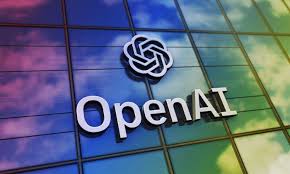One Trillion Dollars.. OpenAI Signs Ambitious Computing Deals Raising Questions About Its Financial Capacity

In a bold move that raises questions about the limits of artificial intelligence growth and its funding, OpenAI has signed a package of agreements to secure computing capacity estimated to be worth around one trillion dollars, far exceeding its current revenue.
The deals have been flowing in one after another, with the latest announced on Monday with chip manufacturer AMD, following previous agreements with tech giants Nvidia, Oracle, and CoreWeave. All aim to meet the rapidly growing demand for computing power needed to run its smart services like ChatGPT.
According to estimates from OpenAI officials reported by the Financial Times, these agreements will provide the company with more than 20 gigawatts of computing capacity over the next decade, equivalent to the output of 20 nuclear reactors. The cost of this massive project approaches one trillion dollars, based on the fact that deploying each gigawatt of computing power dedicated to artificial intelligence costs about 50 billion dollars at today’s prices.
To finance these unprecedented commitments, OpenAI and its partners have adopted complex and innovative financing strategies. While Nvidia plans to invest 100 billion dollars in OpenAI over the next decade, AMD has granted the company guarantees allowing it to purchase up to 10% of its shares at a nominal price, in exchange for achieving specific performance targets.
AMD's CEO, Lisa Su, described this structure by saying: "It is a very innovative structure, and it was not reached easily."
Despite the optimism that has swept through tech markets, with Oracle's market value jumping by 244 billion dollars after the deal announcement, and AMD's shares rising by 63 billion dollars, this move has raised concerns among analysts.
Gail Luria, an analyst at DA Davidson, warned that "OpenAI is not in a position to make such commitments," predicting that the company's losses this year could reach around 10 billion dollars.
Luria saw this move as a manifestation of Silicon Valley's culture based on the motto "fake it till you make it," pointing out that "now major companies are deeply involved in their bet on OpenAI."
OpenAI, currently valued at around 500 billion dollars, faces enormous funding challenges. In addition to relying on venture capital investments from which it raised about 47 billion dollars over the past year, the company is now turning to debt markets to finance its expansion plans.
However, this rapid growth has raised warnings from credit rating agencies like Moody's, which alerted to the risks arising from the dependence of OpenAI's partners' businesses on the company's uncertain path to profitability.
Amid this frantic race, crucial questions arise about OpenAI's ability to turn its massive investments into a sustainable business model, at a time when it seems that the world's largest tech companies have staked part of their future on this venture.